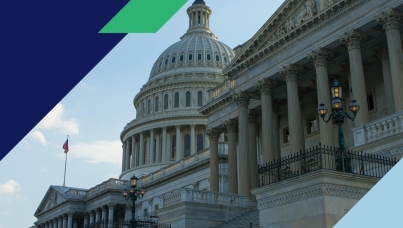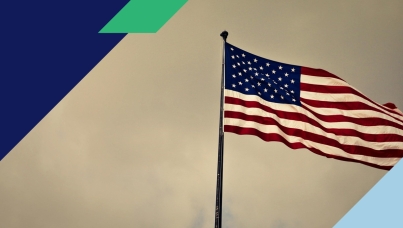Three in four Americans say anti-smoking ads are important
Washington DC, August 6, 2025 – A new Ipsos poll offered exclusively to Axios reveals that nearly three-quarters of Americans say advertisements targeting smoking reduction are important. Additionally, a majority of Americans report having seen ads from initiatives such as Tips from Former Smokers, Real Cost, and Truth Initiative. However, while there is broad agreement on the value of these campaigns, opinions vary on whether these efforts should be strengthened or maintained at current levels.
Read Axios' story here.
- Nearly three quarters (72%) of Americans say that television, online, and print advertisements aimed at reducing smoking or encouraging people to quit smoking are important. However, there are varying levels of support for strengthening these ads.
- Democrats are significantly more likely to find these ads important (82%) than Republicans (71%) or independents (67%).
- One third (33%) of Americans say that the efforts by government agencies of producing ads encouraging people to not smoke should be strengthened. A plurality (43%) say these efforts should be left as they are, while one in ten say they should be weakened (12%); 9% say they should be eliminated.
- While most Americans support evaluating public health campaigns in order to understand how well the campaign worked, some believe the government should prioritize cost cutting wherever possible.
- A majority (86%) of Americans find it important to measure the effectiveness of public health campaigns. Democrats are significantly more likely to find this important (93%) than independents (86%) or Republicans (80%).
- Seven in ten (72%) Americans say they think government agencies should conduct research to measure and improve effectiveness of its communications, even though it costs money, versus one in four (24%) that say agencies should prioritize cutting costs and eliminating programs, even if it makes it difficult to know what policies and communications work.
- An overwhelming majority (92%) of Democrats and almost three quarters (72%) of independents say they would prefer if government agencies prioritized campaign evaluation, while only about half (56%) of Republicans said the same. Meanwhile, 40% of Republicans say they prefer government agencies focusing on cutting cost and eliminating programs.
- Trust in medical and health research varies widely depending on the type of institution doing the research.
- Seven in ten Americans say they have a great deal or fair amount of trust medical and health research conducted by the Centers for Disease Control and Prevention (69%), the Food and Drug Administration (68%), the National Institutes of Health (69%), and universities (71%).
- Fewer trust medical and health research conducted by private companies (41%).
- Most Americans say they have seen ads aimed at reducing smoking or encouraging people to quit.
- Two thirds (67%) say they have previously seen Tips from Former Smokers ads, 29% have seen ads from Real Cost, and 24% have seen ads from Truth Initiative.
Note: Ipsos has previously conducted research on anti-smoking campaigns with the CDC.
About the Study
This poll was conducted from June 6-9, 2025, using the probability-based KnowledgePanel®. This poll is based on a nationally representative probability sample of 1,015 adults age 18 or older.
The study was conducted in English. The data were weighted to adjust for gender by age, race and ethnicity, census region, metropolitan status, education, household income, political party identification, and 2024 presidential vote. Party ID benchmarks are from the 2024 NPORS annual survey. The demographic benchmarks came from the 2024 March supplement of the U.S. Census Bureau’s Current Population Survey (CPS).
- Gender (Male, Female) by Age (18–29, 30–44, 45-59 and 60+)
- Race/Hispanic Ethnicity (White Non-Hispanic, Black Non-Hispanic, Other, Non-Hispanic, Hispanic, 2+ Races, Non-Hispanic)
- Education (Less than High School, High School, Some College, Bachelor’s degree, Master’s degree or higher)
- Census Region (Northeast, Midwest, South, West)
- Metropolitan status (Metro, non-Metro)
- Household Income (Under $25,000, $25,000-$49,999, $50,000-$74,999, $75,000-$99,999, $100,000-$149,999, $150,000+)
- Political Party ID (Democrat, Lean Democrat, Republican, Lean Republican, Independent/Something else)
The margin of sampling error is plus or minus 3.2 percentage points at the 95% confidence level, for results based on the entire sample of adults. The margin of sampling error takes into account the design effect, which was 1.10. The margin of sampling error is higher and varies for results based on sub-samples. In our reporting of the findings, percentage points are rounded off to the nearest whole number. As a result, percentages in a given table column may total slightly higher or lower than 100%. In questions that permit multiple responses, columns may total substantially more than 100%, depending on the number of different responses offered by each respondent.
For more information on this news release, please contact:
Mallory Newall
Vice President, US
Public Affairs
[email protected]
About Ipsos
Ipsos is one of the largest market research and polling companies globally, operating in 90 markets and employing nearly 20,000 people.
Our passionately curious research professionals, analysts and scientists have built unique multi-specialist capabilities that provide true understanding and powerful insights into the actions, opinions and motivations of citizens, consumers, patients, customers or employees. Our 75 business solutions are based on primary data from our surveys, social media monitoring, and qualitative or observational techniques.
“Game Changers” – our tagline – summarizes our ambition to help our 5,000 clients navigate with confidence our rapidly changing world.
Founded in France in 1975, Ipsos has been listed on the Euronext Paris since July 1, 1999. The company is part of the SBF 120, Mid-60 indices, and is eligible for the Deferred Settlement Service (SRD).
ISIN code FR0000073298, Reuters ISOS.PA, Bloomberg IPS:FP
35 rue du Val de Marne
75 628 Paris, Cedex 13 France
Tel. +33 1 41 98 90 00



